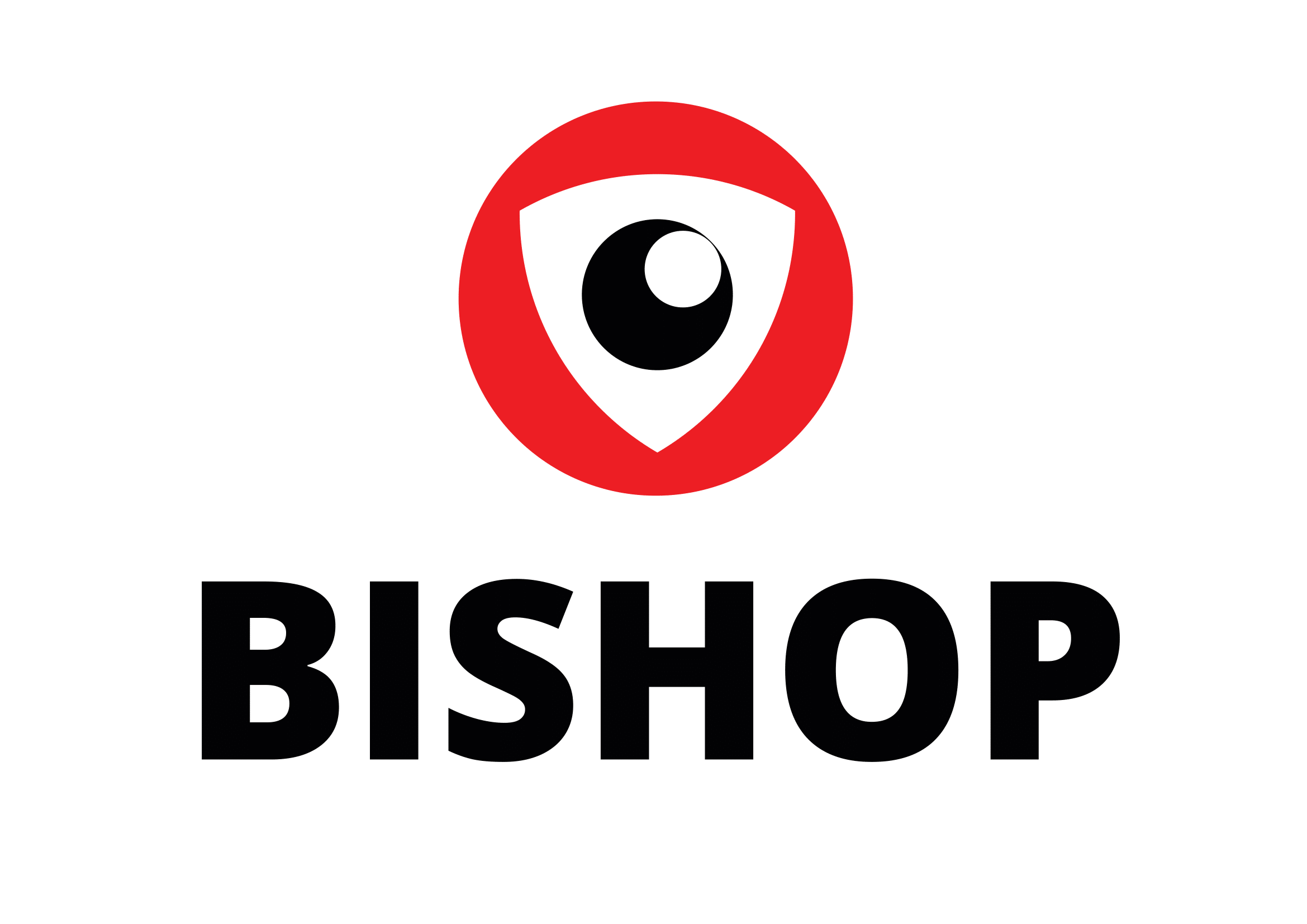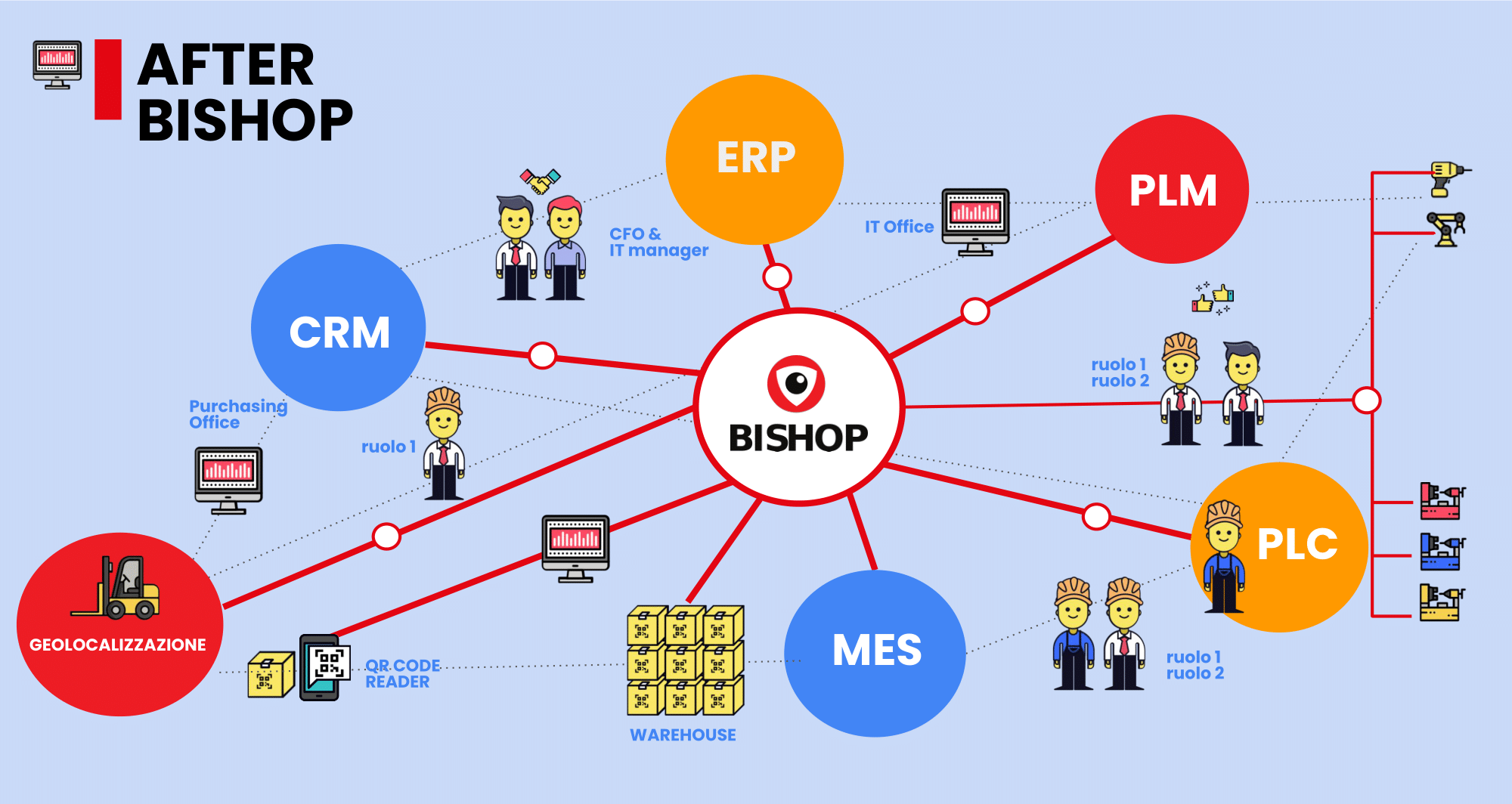When we tackle projects, we try to convey to clients the concept of continuous improvement, which in digital, at any level, is indispensable. It would be a mistake, also from an image point of view, not to apply it internally. That is why our Regesta group is always on the move, both in our service offerings and in our corporate structure.
An important step in our evolution is the acquisition of Ultrafab, a company specializing in IoT and the development of industrial operating systems. Bishop, the operating system patented by the company in 2020, makes it possible to integrate the different systems and services involved in the production cycle.
We see with Francesca Solazzi, our group’s sales coordinator, the story of this acquisition and the opportunities it is generating.
Grow and develop new opportunities
Continuous improvement is the key. “The Regesta Group has grown along with the evolution of the market,” Francesca explains, “Our goal is to cover all areas and meet all customers’ technical needs. Bishop’s Ultrafab fit perfectly into this vision, because it allows us to offer a unique system integration and communication service on the market. In addition, it allows us to represent our evolution: it is a way of reaffirming, also from the point of view of the corporate structure, that we do not deal exclusively with ERP.”
The theme of identity is also dear to Alessio Bernesco Làvore, founder of Ultrafab, and Guido Menapace, senior project manager, who have always wanted to communicate the potential of their platform. Francesca summarizes them this way,“Bishop has gained credibility for its ability to talk to industrial IoT and collect field data, but it is capable of much more. In talking with Alessio, we discovered that their goal is to create systems that connect different environments. The telemetry and IoT data acquisition aspect builds great opportunities, but it’s important to get the word out about everything the system can do.”
Bishop, the brain of the smart factory
Much has been said in recent years about industrial connectivity, smart factories and data as a new strategic asset. Often these ambitions collide with a reality of fragmented systems, incompatible languages and information silos that prevent a comprehensive view. This is where Bishop, the operating system developed by Ultrafab and now part of the Regesta Group ecosystem, comes in .
“Bishop is designed to do what many other systems promise without really succeeding: to connect different environments and give consistency to information“-Francesca clarifies-“Its strength is its ability to transfer data from platform to platform, even between seemingly incompatible environments, normalizing them and making them immediately available for analysis, monitoring or automation.”

A key feature is that it is not necessarily dependent on physical devices. It can process information from software sources, databases, ERP systems or vertical applications, connecting even business areas that are not part of production in the strict sense. It thus helps overcome information fragmentation, reduces the risk of losing valuable information, and makes an integrated view of processes accessible.
“We call it the factory operating system because, just like in smartphones, it provides essential basic services on which all other applications can rest,” Francesca continues. “It is the starting point for those who want to build a smart factory that is not only connected, but also smart.”
The features that make Bishop unique
Many tools promise integration and flexibility, but few actually deliver on them. Bishop is distinguished by its open, agnostic architecture that is completely based on open source technologies, allowing it to adapt to any scenario without imposing technological constraints on the client.
“One of the elements we appreciated right from the start is the neutrality of the platform,” Francesca Solazzi says.“It can run on public, private or on-premises clouds, without requiring changes to the existing infrastructure. It is able to talk with systems from any manufacturer, precisely because its approach is not bound to a specific technology stack.”
Another strength is real-time data management: the platform does not just collect information, but processes it, enriches it, and makes it available to other systems almost instantaneously. At the heart of this process is a configurable rules engine that allows raw data to be transformed into operational information, with deterministic logic that is also easily governed by the customer.
Bishop, while developed on a fully deterministic and therefore more performance-efficient basis, is designed to integrate with external AI services as well, if necessary: the data can be enriched by machine learning algorithms or used to trigger customized automations and alerts along the decision chain.
All this translates into greater transparency, traceability and control. “Bishop does not impose an infrastructure revolution,” Francesca points out, “but builds a coherent system from what already exists, bringing order to the information chaos and turning it into a competitive advantage.”

The challenge: from data collection to operational information
Today, the availability of data is no longer a problem: companies are constantly collecting metrics, signals and indicators. The real challenge is to
“We often talk about digital transformation, but if data remains locked in logs that are difficult to interpret or in systems that don’t communicate, we can’t really talk about transformation,” notes Francesca Solazzi.“Bishop was born to change this dynamic: it takes the signal, turns it into data, and the data makes it enriched information of the operational context.”
Whether it is a sensor on a machine, an event in a management system or a transaction detected across multiple systems, the platform’s job is to give consistency and visibility to what is happening, empowering people to act with greater awareness and speed. This applies not only to production departments, but also to logistics, maintenance, quality and day-to-day operational management.
It is a concrete vision, centered on the real use of data and the ability to break down technical complexity and turn it into strategic advantage. It is an important piece in the overall vision of our group, which continues to grow in order to offer companies suitable tools to deal with the complexity of the present and build, methodically, their digital future.
Do you want to know what benefits Bishop can bring to your business?
Contact us for more information and tell our experts about your needs.